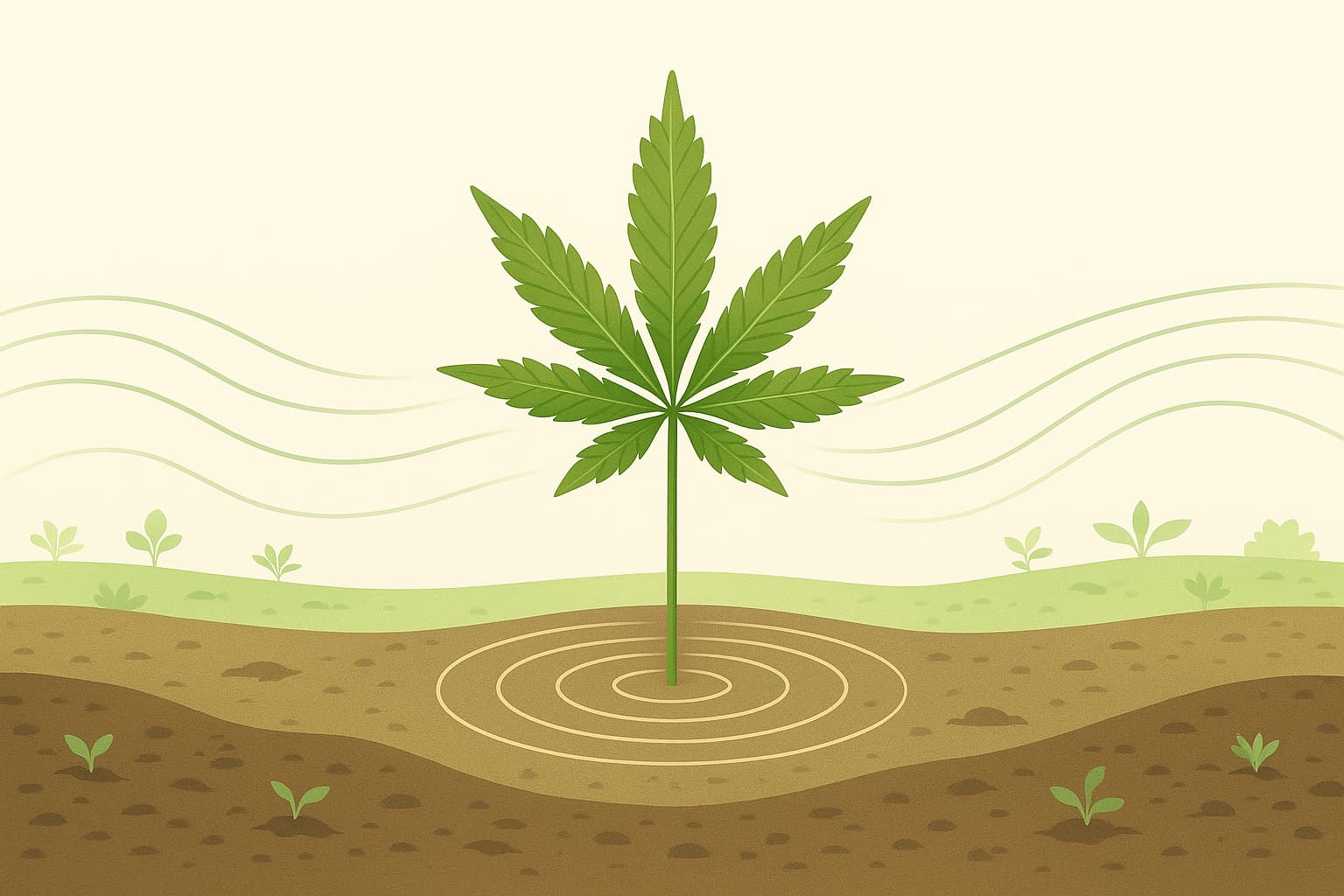
Regenerative cultivation embodies a transformative approach to cannabis production that prioritizes ecological renewal, soil restoration, and the creation of resilient agroecosystems. Rather than focusing exclusively on yield metrics, this methodology integrates resonance-based practices to harmonize biological, energetic, and environmental processes.
Frequency Farmer – Regenerative Cultivation combines living soil management, microbial inoculation, and intentional field design to create a cultivation system that sustains itself over time. By treating the farm as an interconnected web of relationships—soil organisms, plants, climate cycles, and human intention—practitioners unlock new dimensions of plant vitality and cannabinoid expression.
This capsule introduces foundational principles, evidence-based methods, and resonance-aligned practices to help growers implement regenerative strategies that improve phytochemical quality while contributing to long-term ecological stewardship.
The philosophy of regenerative cultivation is centered on the understanding that agricultural systems can evolve beyond sustainability into active regeneration. Instead of merely maintaining soil health or limiting environmental impact, regenerative methods aim to restore ecosystems, rebuild fertility, and promote biodiversity.
Frequency Farmer – Regenerative Cultivation takes this concept further by integrating resonance principles into regenerative frameworks. The grower becomes both steward and participant in a living, dynamic network. Every cultivation decision—whether it involves composting, cover cropping, or microbial inoculation—is seen as an energetic offering that influences the overall field signature.
This perspective aligns with emerging research demonstrating that biologically diverse, intention-infused agricultural systems can produce superior phytochemical profiles while enhancing ecological resilience.
Regenerative cultivation based on Frequency Farmer is grounded in five key principles:
Practitioners can implement regenerative resonance cultivation with the following practices:
Implementing regenerative and resonance practices in cannabis cultivation yields multiple benefits:
Our Frequency Farmer consulting service is designed for organizations and producers seeking to integrate scientifically validated resonance-based methodologies into their cannabis cultivation workflows. We deliver tailored strategies for combining electromagnetic field optimization, acoustic stimulation, circadian irrigation scheduling, and intentional field design to create a high-frequency production environment. Clients receive structured implementation roadmaps, training resources, and evidence-based protocols to accelerate phytochemical optimization and operational excellence.
Contact for inquiries:
📩 nabil.khayat@cannabisdatahub.com